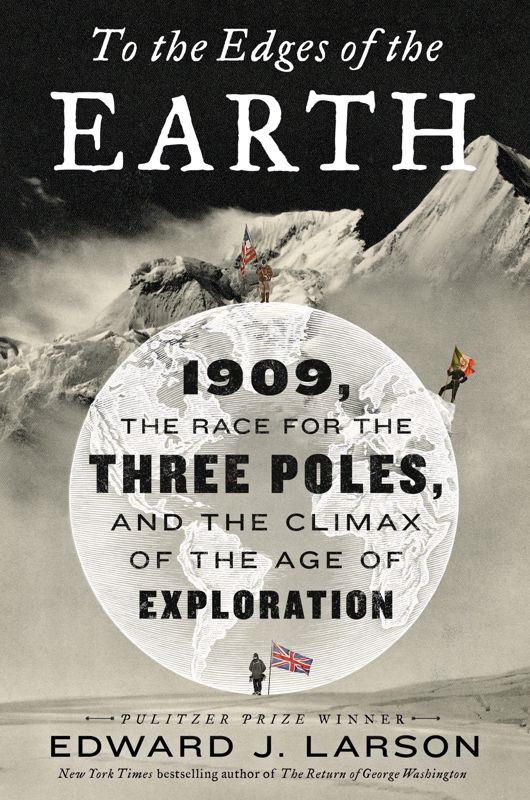Extreme exploration
To me the stories of extreme exploration seem like a ghastly litany of woe. Never mind the heroics or the audacity, what fascinates me is the accumulation of calamity that coats these stories like so much ice. First the ship is trapped in sea ice then with misguided but high hopes the explorers set off with their dogs, but scurvy, frostbite and starvation take their toll until the dogs are eaten, perhaps people are eaten, and then the shattered survivors – missing some digits, no doubt – return to the ship with little to show for their efforts. Then they do it again the following year.
 Madness? Or an exhilarating example of man’s relentless pursuit to be the first, to go the farthest? Readers can decide for themselves in Edward Larson’s latest book, To the Edges of the Earth: 1909, the Race for the Three Poles, and the Climax of the Age of Exploration which details three extreme Edwardian explorations: American Robert Peary’s quest for the North Pole in the Arctic, Britain’s Ernest Shackleton’s expedition to the South Pole in Antarctica, and Italy’s Duke of Abruzzi’s ascent of K2, the so-called “Pole of Altitude” or “Third Pole.”
Madness? Or an exhilarating example of man’s relentless pursuit to be the first, to go the farthest? Readers can decide for themselves in Edward Larson’s latest book, To the Edges of the Earth: 1909, the Race for the Three Poles, and the Climax of the Age of Exploration which details three extreme Edwardian explorations: American Robert Peary’s quest for the North Pole in the Arctic, Britain’s Ernest Shackleton’s expedition to the South Pole in Antarctica, and Italy’s Duke of Abruzzi’s ascent of K2, the so-called “Pole of Altitude” or “Third Pole.”
1909 would find each man in sight – metaphorically speaking – of his goal. Of course all the expeditions were beset with beastly weather and the nightmare of supplies, but each faced unique challenges as well. The resolute Peary, missing toes from frostbite on previous expeditions, was plagued with shifting Arctic sea ice. Shackleton, charismatic and a brilliant leader, was hampered by the poor decision to bring ponies (and a car!) instead of sled dogs. The Duke of Abruzzi, a celebrity in his day but now almost forgotten, contended with spring avalanches and monsoons in the Himalayas.
Yet these men, motivated by adventure, fame and fortune, pushed to the farthest edges of the earth. Like Tennyson’s Ulysses, they sought “to strive, to seek, to find, and not to yield.”














